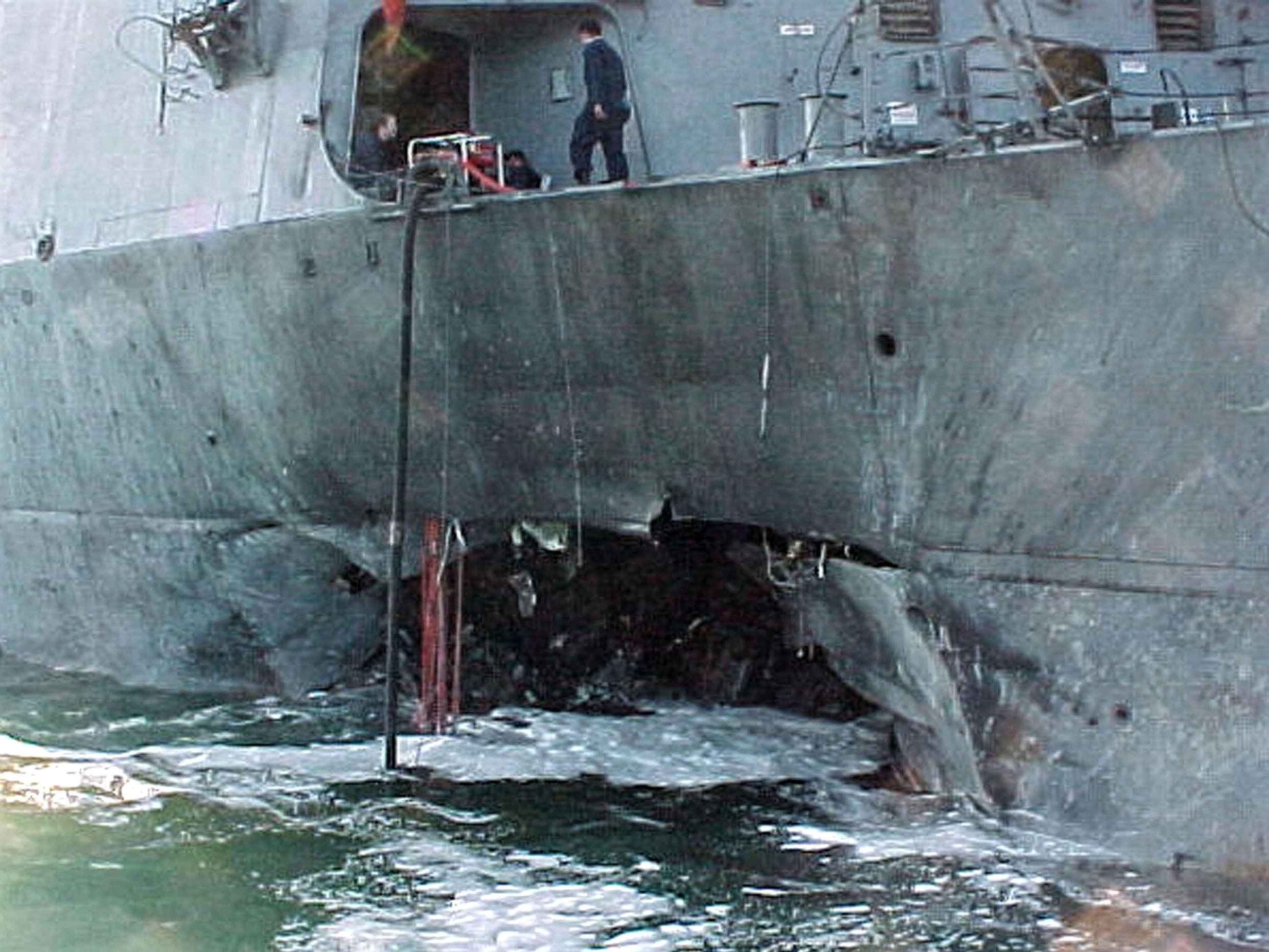US Supreme Court rules against USS Cole sailors over $315m Sudan lawsuit

The US Supreme Court has prevented American sailors injured in the deadly 2000 al-Qaeda bombing of the navy destroyer USS Cole from collecting $314.7m in damages from the government of Sudan for its alleged role in the attack.
In a 8-1 ruling, the justices overturned a lower court's decision that had allowed the sailors to collect the damages from certain banks that held Sudanese assets.
In the ruling, the justices agreed with Sudan that the lawsuit had not been properly initiated in violation of US law because the claims were delivered in 2010 to Sudan's embassy in Washington rather than to its minister of foreign affairs in Khartoum.
The decision represented a major victory for Sudan, which denies that it provided any support to al-Qaeda for the attack in Yemen.
Khartoum was backed by President Donald Trump's administration in the case.
The administration told the justices that a ruling against Sudan could impact how the US government is treated by foreign courts because the US rejects judicial notices delivered to its embassies.
The sailors were highly critical of the administration's position, the Reuters news agency reported.
"Particularly given this administration's solicitude for veterans, its decision to side with a state sponsor of terrorism, against men and women who are seeking to recover for grievous injuries suffered in the service of our country, is inexplicable and distressing," they said in a legal brief to the court.
'The fight for justice... continues'
"Sudan is pleased with the decision," said Christopher Curran, who represented Sudan's government in the case.
"No one disputes that the sailors on the Cole were the victims of a brutal terrorist attack. But Sudan vehemently disputes any culpability in that attack, and is determined to clear its name."
A lawyer for the sailors, Kannon Shanmugam, expressed disappointment.
"The fight for justice for the Cole victims and their families continues," Shanmugam said.
A lower court had levied damages by default because Sudan did not defend itself against allegations that it had given support to al-Qaeda.
'Far flung outpost'
The 12 October, 2000 attack killed 17 sailors and wounded more than three dozen others when two men in a small boat detonated explosives alongside the guided-missile destroyer as it was refueling in the southern Yemeni port of Aden, blasting a gaping hole in its hull.
The vessel was repaired and later returned to full active duty.
Fifteen of the injured sailors and three of their spouses sued Sudan's government in 2010 in Washington.
At issue was whether mailing the lawsuit to Sudan's embassy violated the Foreign Sovereign Immunities Act, a US law governing when foreign governments may be sued in US courts.
Writing for the court's majority, conservative Justice Samuel Alito said that other countries' foreign ministers must be reached where they normally work, "not a far flung outpost that the minister may at most occasionally visit".
Sensitive diplomatic implications
Alito expressed sympathy toward the sailors, writing that the ruling may seem like it is enforcing an empty formality.
"But there are circumstances in which the rule of law demands adherence to strict requirements even when the equities of a particular case may seem to point in the opposite direction," Alito said, adding that the case had sensitive diplomatic implications.
Alone in his dissent, conservative Justice Clarence Thomas said that allowing litigants to send notices of lawsuits to embassies would comply with both US and international law.
In 2012, a federal judge in Washington issued a default judgment of $314.7m against Sudan. Individual plaintiffs were to receive between $4m and $30m each.
A separate judge in New York later ordered certain banks to turn over assets they had held for Sudan to partially satisfy the judgment.
The 2nd US Circuit Court of Appeals in New York upheld those orders in 2015.
Middle East Eye delivers independent and unrivalled coverage and analysis of the Middle East, North Africa and beyond. To learn more about republishing this content and the associated fees, please fill out this form. More about MEE can be found here.





